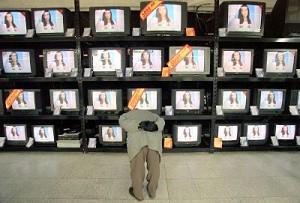Recently, China’s General Administration of Press and Publication announced a nationwide audit on 10,000 periodicals to help standardize periodical publication forms. However, media workers in mainland China believe this is an attempt to further control publication content.
According to media workers, the administration recently issued a policy that requires a unique registration number for each periodical. In addition to this, a regulation titled Standardization of Periodical Publication Form outlines strict requirements for publisher information, name of the periodical, and a chronological issue number for the periodical. The administration will begin the nationwide audit in July.
Media workers believe that the policies do not try to rationalize the chaotic periodical market, but instead are meant to target specific magazines, such as those with International Standard Book Numbering (ISBN) or Hong Kong Book Numbering.
One editor of a Chinese magazine, who wanted to remain anonymous, told RFA,."The ban on the practice of one registration number for many periodicals has been mentioned frequently. Now, maybe they want to target some periodicals with Hong Kong numbers. There are many of these kinds of periodicals here now. Maybe they want to standardize that because those periodicals all have special backgrounds and are without mainland registration numbers.
“Actually, the key to standardization is to eliminate the reports that the authorities dislike. The action has targets. The 17th Party Congress and the Olympics in Beijing are just around the corner. It might have something to do with these two events. This policy, just like previous policies, claims to target pornographic and illegal publications, but actually it emphasizes the elimination of illegal publications instead of pornography.”
The former editor of People magazine, Huang Liangtian, says a lot of Chinese periodicals are in financial difficulty. They commonly rely on the practice of one registration number for many periodicals. However, this has made auditing and managing by the administration more difficult.
Huang said, “It is very difficult for a periodical to survive. You have to meet the propaganda quota set by government administration departments [in your content]. Ordinary people don’t want to read such propaganda, so the sponsors are very few. And thus, it becomes a monthly magazine. Sometimes they even lease their periodicals to other companies. By doing so, the publisher breaks the line set by the government and the government cannot regulate it. ”There are so many periodicals in China, it is impossible to regulate them all. New registration numbers have not been released for a very long time, but nearly 10,000 numbers have been approved, including monthly, bi-weekly, and weekly magazines. There is a lot of room for people to move, and [this is] difficult for the administration to manage.”
Former China Ocean journalist Zan Aizong believes that the numerous restrictions set by the administration are actually the main reason for the current chaos in the periodical market.
“The administration does not want to lose its control of registration numbering, but the publishers want to change the periodical names to suit the market. Currently, the administration wants tight control, but it cannot get it under control,” said Zan.
“It should relinquish the control. You cannot create a rule for everything. According to China’s administrative regulation, only things defined by the administrative regulation need administrative approval. You require people to get your approval to change a name or start a new periodical, but this is illegal.”
Not long ago, the administration also drafted the Internet Publication Management Regulation to put web-based magazines under its control. When the regulation starts to take effect, electronic publications on the Internet will also need approval from the administration before they can even apply for an Internet Information Service Business License from the Ministry of Information Industry.
At about the same time as the administration made public its new regulation, the No. 36 FIPP World Magazine Congress was also held in Beijing. This event is regarded as the Olympics of periodicals, and this is the second time an Asian country has hosted the congress since it was held in Japan in 1977. The theme of this congress is “Magazines Enrich Your World,” and the General Administration of Press and Publication is one of the co-sponsors.




